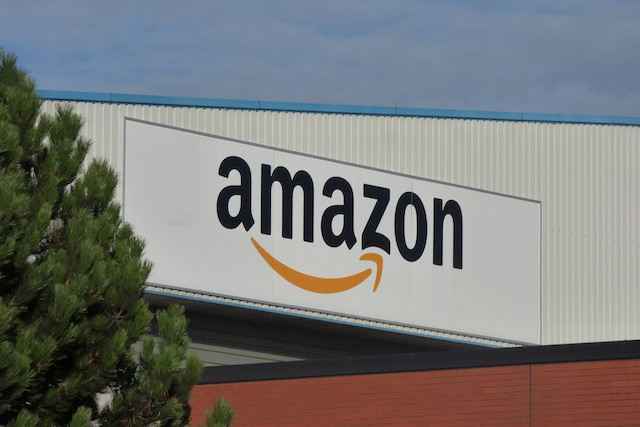The company, which has been locked in a race with Apple and Alphabet to be the world’s first trillion-dollar business, revealed that pre-tax profits at its UK business tripled from £24m in 2016 to £72m last year.
The figures were reported by Amazon UK Services, the company’s warehouse and logistics operation that employs more than two-thirds of its 27,000-plus UK workforce, in its annual financial filing to Companies House.
The company almost halved its declared UK corporation tax bill from £7.4m in 2016 to £4.5m last year. It received a tax credit of £1.3m from the UK authorities in 2016, and last year paid £1.7m tax on its profits.
“We pay all taxes required in the UK and every country where we operate,” an Amazon UK spokesman said.
The cuts in tax payment came despite turnover at the UK business, which handles the packing and delivery of parcels and functions such as customer service, rising 35% from £1.46bn to £1.98bn.
“Corporation tax is based on profits, not revenues, and our profits have remained low given retail is a highly competitive, low-margin business and our continued heavy investment,” the spokesman said.
Revenue from Amazon’s UK retail sales are reported through a separate company in Luxembourg, but its US filings reveal that UK revenues hit $11.3bn last year, a healthy 19% year-on-year rise.
For accounting purposes Amazon Services UK reports turnover as a charge to its parent company for the cost of delivering products, which hit £1.98bn last year. Amazon will not reveal how much it paid in total to HMRC last year, beyond what it paid through Amazon Services UK.
Amazon UK’s warehouse and logistics staff and management enjoyed a bumper $164m (£125m) payout from the company share scheme – a rise of almost a third on 2016’s £95m bonanza – thanks to the company’s surging share price.
On average the thousands of staff who handle orders received about £3,000 per person last year. Senior staff will have taken home considerably more.
Amazon’s share price has surged 84% in the last two years. Last year the shares vested at an average stock price of $992, in 2016 it was $704 and in 2015 $467.
The payouts will have reduced Amazon’s tax bill because under UK tax law companies are required to deduct the vest value of the shares provided to employees.
The wage bill for Amazon UK’s 19,749 warehouse and logistics staff and management came to £653m last year, making the average pay per employee £33,000.
Doug Gurr, Amazon’s UK and Ireland boss, said in June that the company would create more than 2,500 jobs in the UK this year, including 650 head office roles. A month later, he reportedly told the Brexit secretary, Dominic Raab, that Britain would face civil unrest within weeks of a no-deal Brexit, adding the online retailer’s voice to a growing list of businesses expressing concerns.
“We’ve invested over £9.3bn in the UK since 2010 including last year opening a new head office in London alongside development centres in Cambridge and London,” the company spokesman said. “This year we plan to create 2,500 permanent jobs across the country in research and development, our head office, customer service and fulfilment centres, to bring our total workforce in the UK to over 27,500.”
Amazon said in 2015 that it would stop using controversial corporate structures that diverted sales and profits away from the UK, following a clampdown on the practice with the introduction of George’s Osborne’s diverted profits tax.
Earlier this week, Amazon made its first move into public sector procurement with a five-year, £600m deal to sell everything from office supplies to medical equipment to Yorkshire’s schools, social care providers, local government and emergency services across 13 local authority areas.
The deal prompted criticism from the GMB union, which said the company could do more for public services by paying more tax.
“If they really wanted to help our public services they’d pay taxes properly and treat their workforce better,” said Neil Derrick, a GMB regional secretary. “They’re trying to make a few million quid from our cash-strapped councils.”
The latest accounts for the UK parent company, Luxembourg-registered Amazon Europe, show the company’s total Europe-wide tax bill was €54.8m (£48.8m), up from €16.5m (£14.7m) in 2016.
Total European revenues rose 15% year on year, from €21.6bn (£19bn) to €24.9bn (£22bn). Amazon Europe reported an overall loss of €869m (£774m), having reported a profit of €48.5m (£43m) in 2016.
Mark Sweney
